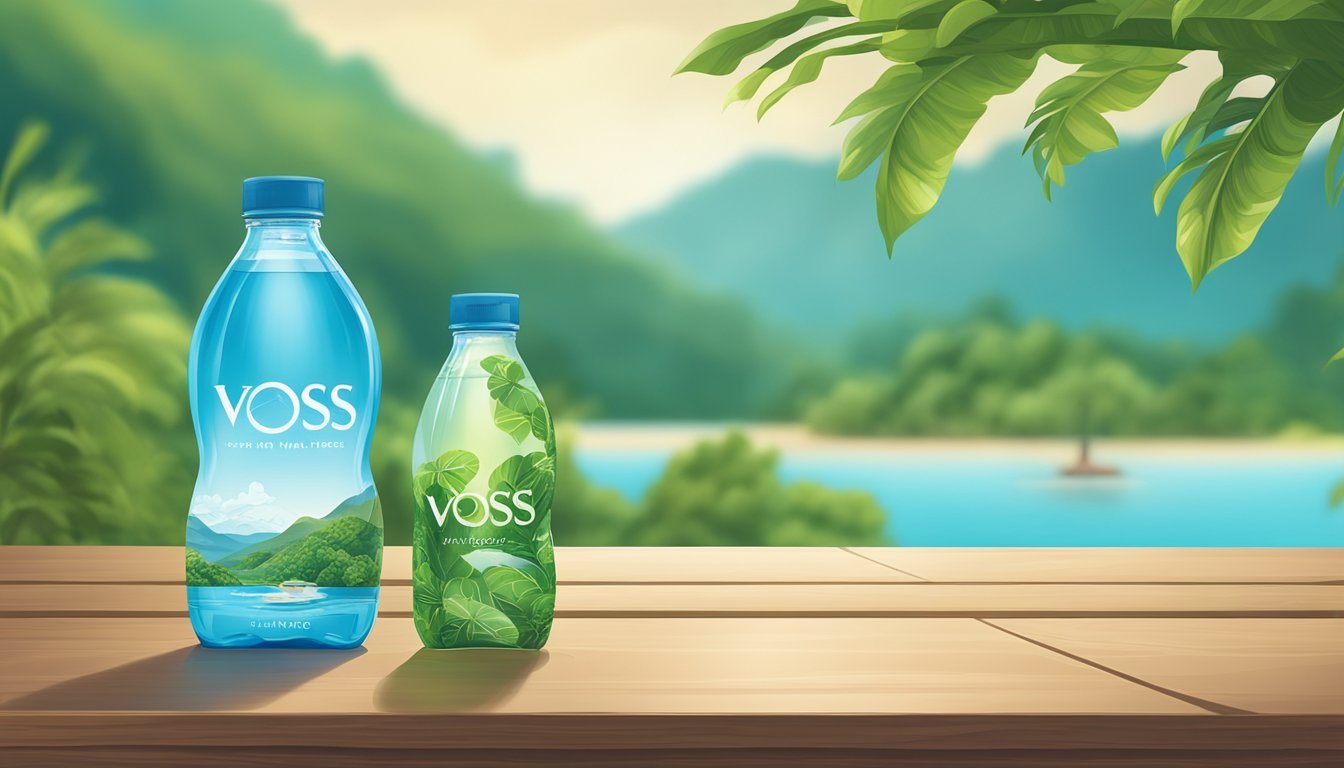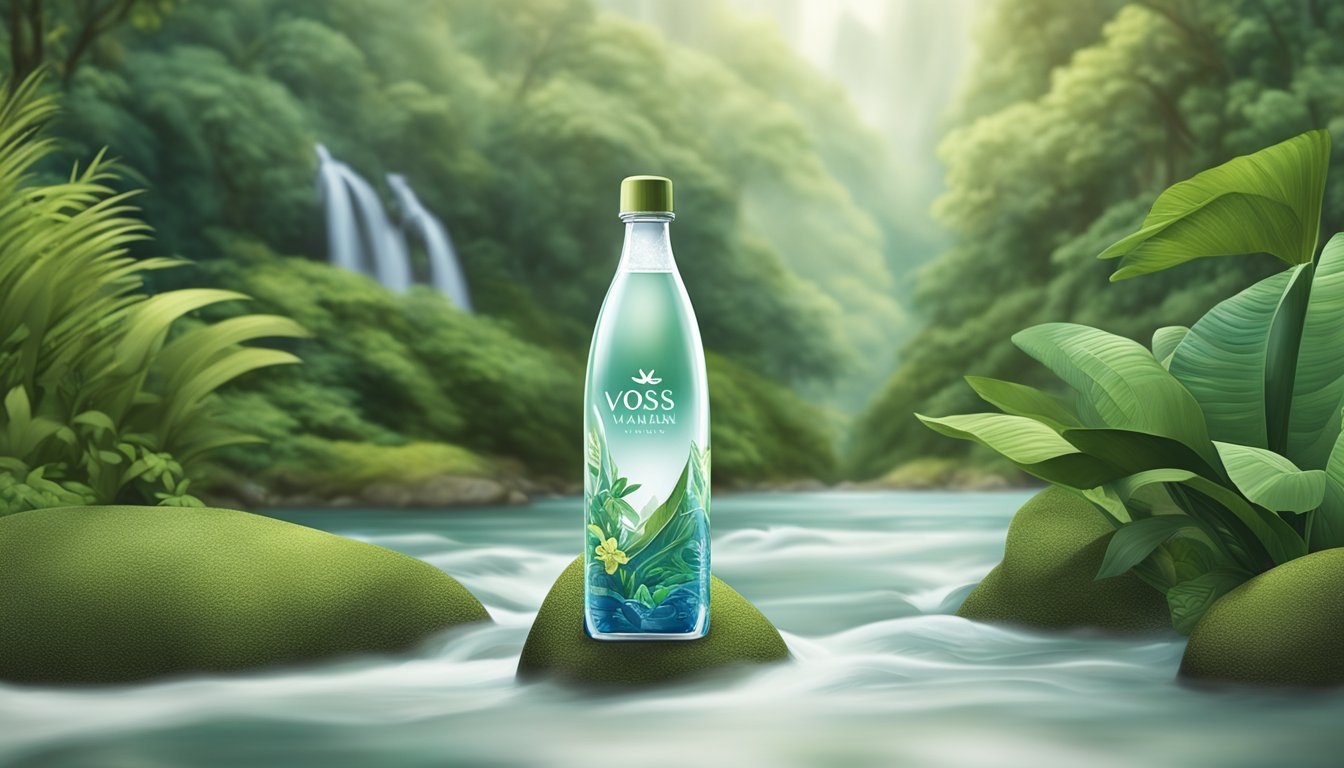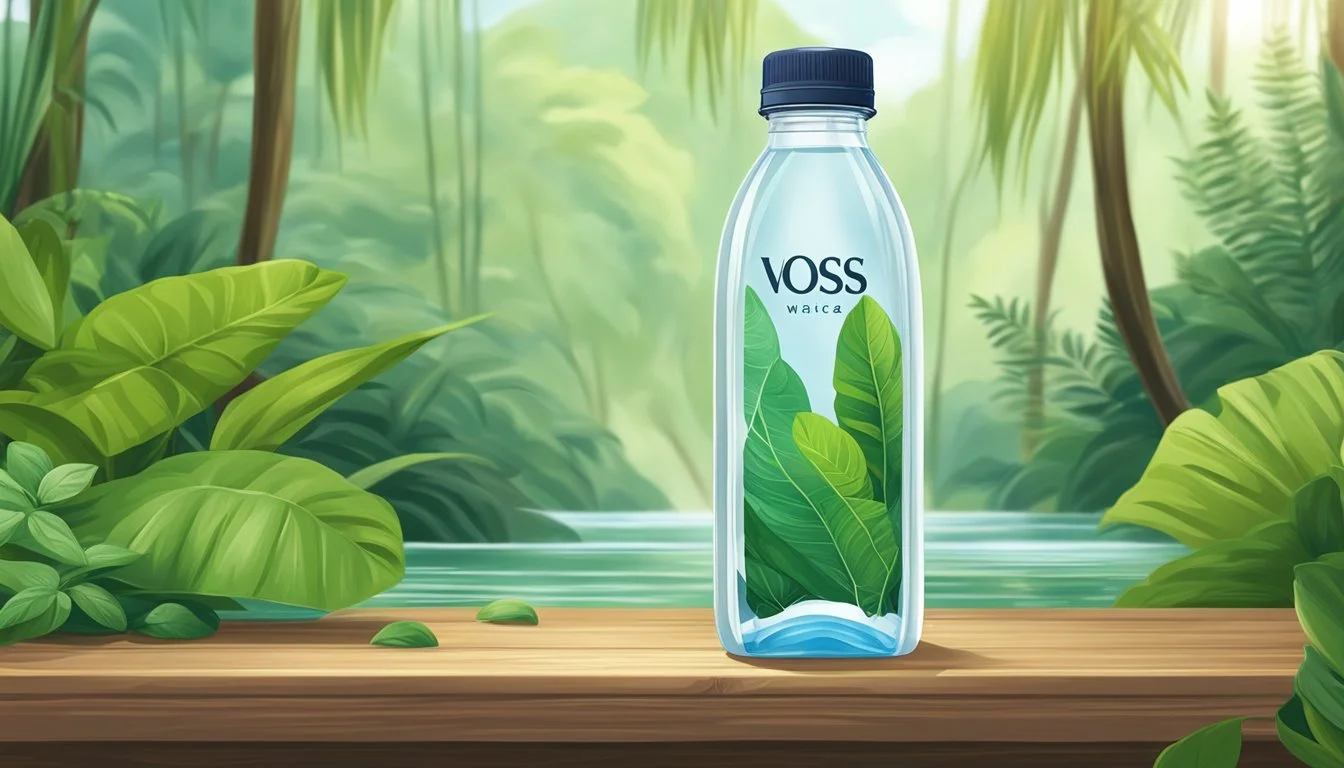Voss vs. Waiakea
Which Bottled Water is Better? A Comparative Analysis
In the quest for the best bottled water, two names often stand out: Voss and Waiakea. Waiakea water, sourced from a volcanic well in Hawaii, boasts a naturally alkaline pH range of 7.6 to 8.2 and contains essential minerals, making it a favorite among health-conscious consumers. On the other hand, Voss, known for its sleek Norwegian artesian water, offers a crisp taste with no aftertaste, appealing to those who prioritize purity and design.
Both brands emphasize quality and unique features. Waiakea has the distinction of being the first US bottled water certified as Carbon Neutral and donates over 5% of its revenue to nonprofit organizations, showcasing a commitment to social responsibility. Voss, while different in approach, maintains a reputation for elegance and excellence with its distinctive glass bottles and clean finish.
When choosing between Voss and Waiakea, it comes down to personal preference for taste, environmental impact, and mineral content. Whether you favor Waiakea's volcanic origin and alkaline nature or Voss's Scandinavian purity and design, each offers a premium hydration experience.
Overview of Bottled Water Industry
The bottled water industry has seen significant growth over the past few decades, driven by rising health consciousness and increased demand for safe drinking water.
Popular Brands
Leading brands like Aquafina, Nestlé Pure Life, and Fiji Water dominate grocery store shelves. Smaller brands such as Waiakea and Voss appeal to niche markets with unique selling points like sustainability and natural sourcing.
Demand
Consumers prioritize purity, taste, and health benefits. The preference for bottled water often stems from concerns over tap water quality and the convenience of portable hydration.
Sustainability
Environmental concerns are shaping the industry. Brands like Waiakea are setting an example by using 100% recycled plastic and renewable energy for production. Carbon-neutral certifications and charitable contributions are becoming significant factors for consumers.
Market Dynamics
Grocery stores play a crucial role in the distribution of bottled water. Shelf placement and brand variety in stores influence consumer choice. Premium brands, positioned as lifestyle products, often see prominent placement and marketing efforts.
Health and Quality
Brands differentiate based on their water sources. For instance, Voss is recognized for its Norwegian artisanal spring water, while Waiakea is known for its volcanic filtration. These unique attributes attract health-conscious buyers looking for specific mineral compositions.
The bottled water industry continues to evolve with a focus on health, convenience, and sustainability, reflecting broader consumer trends and environmental priorities.
Defining Water Quality
When choosing bottled water, it's essential to consider factors such as Total Dissolved Solids (TDS), pH levels, mineral content, and safety from contaminants. These elements significantly impact the water's taste, health benefits, and overall quality.
Total Dissolved Solids (TDS)
Total Dissolved Solids (TDS) measure the combined content of all inorganic and organic substances contained in a liquid. TDS affects the taste and nutritional value of water.
Purified water brands like Aquafina typically have low TDS levels, often adding back beneficial minerals. In contrast, natural spring waters can have higher TDS due to naturally occurring minerals. For example, Waiakea has a TDS level of 53 ppm, offering a mineral-rich profile.
Understanding TDS is crucial when selecting bottled water to meet your taste and health preferences and requirements.
pH Levels and Acidity
pH levels indicate the acidity or alkalinity of the water. Water with a pH level below 7 is considered acidic, while a pH above 7 is alkaline. Most bottled water brands aim for a neutral or slightly alkaline pH to suit consumer preferences.
Waiakea bottled water has a natural pH of around 7.5, making it neutral. On the other hand, Essentia, a popular alkaline water brand, boasts a pH of 9.5 or higher, which some believe offers health benefits.
Consider the pH level if acidity or alkalinity is a concern when selecting bottled water.
Mineral Content
Mineral content plays a significant role in the taste and health benefits of bottled water. Common minerals found in natural bottled waters include calcium, magnesium, and potassium. These contribute to the water's electrolytic balance and flavor.
For instance, Voss Artesian Water, sourced from underground aquifers, naturally contains a variety of minerals, giving it a distinct taste. Mountain Valley Spring Water, known for its rich mineral profile, is another example of mineral-rich bottled water.
The presence and amount of these minerals can enhance the water’s nutritional value and appeal.
Safety and Contaminants
Safety and contaminants are critical factors when evaluating bottled water quality. Bottled water must meet stringent safety standards to ensure it is free from harmful substances.
Brands such as Aquafina ensure their water undergoes rigorous filtration and purification processes, including reverse osmosis and UV exposure, to eliminate impurities. Waiakea, known for its natural volcanic filtration process, boasts low levels of contaminants and maintains a pristine quality.
Choosing bottled water involves verifying the brand's commitment to safety and rigorous contaminant testing.
Health and Hydration
Voss and Waiakea bottled waters both offer unique features impacting health and hydration. This section will explore the importance of staying hydrated, the benefits of alkaline water, and the role of electrolytes in hydration.
Importance of Hydration
Staying hydrated is crucial for maintaining bodily functions. Water helps regulate temperature, maintain blood pressure, and facilitate digestion.
Voss and Waiakea can contribute to daily hydration needs efficiently. Drinking enough water daily ensures that cells remain properly hydrated, promoting better physical and mental performance. Dehydration can lead to fatigue, headaches, and impaired cognitive function.
Health Benefits of Alkaline Water
Alkaline water, such as Waiakea, has a higher pH level than regular tap water. This can help neutralize acid in the bloodstream. Some studies suggest that it may aid in reducing acid reflux symptoms and improving overall hydration speed.
Waiakea also boasts naturally occurring electrolytes, which provide additional benefits. These elements help maintain the body's pH balance, potentially leading to improved energy and metabolism.
Electrolytes and Hydration Needs
Electrolytes are minerals like sodium, potassium, and magnesium. These are essential for sustaining hydration levels in the body. Both Voss and Waiakea contain these vital minerals.
Electrolytes support muscle function, nerve signaling, and hydration balance. They are especially crucial during physical activity, when sweating can deplete these essential nutrients. Drinking water rich in electrolytes replenishes lost minerals, helping prevent dehydration and maintaining performance.
Voss and Waiakea Brand Profiles
Voss and Waiakea are two distinct bottled water brands, each characterized by unique attributes that appeal to different consumer needs. Voss epitomizes luxury and sophistication, while Waiakea emphasizes sustainability and eco-consciousness.
Voss: Luxury in a Bottle
Voss is synonymous with luxury and elegance. Originating from Norway, Voss water is known for its pristine purity, sourced from an underground aquifer. The brand is famous for its iconic cylindrical glass bottle, which has become a symbol of high-end sophistication.
Celebrities and upscale restaurants often choose Voss, enhancing its image as a premium product. Available both in still and sparkling varieties, Voss provides a crisp, clean taste that stands out.
The brand's packaging, especially the glass bottles, ensures the water remains free of impurities, contributing to its premium quality. Voss also offers its product in PET bottles for more practical everyday use, catering to a broader range of consumers.
Waiakea: Sustainability First
Waiakea water emphasizes sustainability and environmental responsibility. Sourced from a volcanic well in Hawaii, it boasts naturally alkaline properties with a pH range of 7.6 to 8.2. Its unique mineral composition, including essential electrolytes, enhances its health benefits.
Waiakea champions eco-friendly practices throughout its production process. The brand uses 100% recycled polyethylene terephthalate (rPET) bottles, significantly reducing its carbon footprint. Additionally, Waiakea partners with organizations to provide clean water access to communities in need, reinforcing its commitment to social responsibility.
The volcanic filtration process ensures Waiakea’s water maintains its purity and taste, making it a popular choice among health-conscious consumers.
Sourcing and Purification
The sourcing and purification processes of Voss and Waiakea highlight the uniqueness of each brand. Understanding these aspects helps consumers make an informed choice about their preferred bottled water.
Natural Spring Water vs. Artesian Water
Waiakea sources its water from a volcanic natural spring in Hawaii. This unique source provides naturally alkaline water with a pH range of 7.6 to 8.2, enriched with essential minerals and electrolytes. Sourced directly from a volcanic well, Waiakea's water benefits from natural filtration through porous volcanic rock, maintaining its purity and freshness.
In contrast, Voss's water comes from an artesian aquifer in Norway. The water is drawn through layers of sand and rock, creating a unique mineral profile. Artesian water is known for being highly protected from contaminants due to its natural underground storage, offering a distinct smooth taste.
Filtration and Purification Process
Waiakea employs a filtration process that retains its natural minerals while ensuring the water is clean. The water undergoes minimal processing to preserve its natural properties, resulting in water that is as pure as it is originally sourced.
Voss water undergoes a meticulous purification process. The water is filtered to remove impurities while maintaining its signature clean and crisp taste. Voss’s filtration system ensures that the water remains of high quality, providing a consistent product.
Both brands prioritize cleanliness and quality, but their methods reflect their differing sources and the unique characteristics of each water type. This attention to detail ensures that consumers receive pure and refreshing water with every bottle.
Taste Profile
The taste of bottled water can be surprisingly diverse, influenced by its source, mineral content, and filtration process. This section explores the factors that affect water taste and compares the taste profiles of Voss and Waiakea.
Factors Affecting Water Taste
Several elements influence the taste of bottled water, leading to varieties such as crisp, smooth, or mineral-rich.
Source water: The origin of the water, whether it’s spring, artesian, or rainwater, significantly affects its flavor.
Mineral content: Higher mineral content can impart a richer taste, while lower mineral content might result in a more neutral flavor.
Filtration process: Methods like reverse osmosis or carbon filtering alter the taste by removing impurities or adding desired minerals.
These factors collectively shape the unique taste profile of each brand.
Taste Test: Voss vs. Waiakea
Voss: Known for its neutrality, Voss water comes from an artesian well in Norway. It offers a clean, crisp taste that appeals to those who prefer minimal mineral interference. This pure and understated flavor often gets high marks for refreshment and simplicity.
Waiakea: Sourced from the volcanic springs of Hawaii, Waiakea water contains natural minerals like calcium, sodium, and magnesium. This results in a slightly alkaline pH and a characteristic smooth taste with a subtle mineral finish. Some drinkers find this refreshing and invigorating, particularly after physical activity.
When comparing both, it comes down to personal preference. Those who favor a crisp, neutral taste might lean towards Voss, while those looking for a distinctive mineral profile might prefer Waiakea.
Packaging and Environmental Impact
When comparing Voss and Waiakea bottled water, it is essential to focus on their packaging materials and the environmental impact of their production processes.
Bottle Materials and Design
Voss uses sleek, reusable glass bottles for its still water variants, which are not just aesthetically pleasing but also sustainable as they can be reused multiple times. For sparkling water, Voss offers recyclable plastic bottles. The design is minimalistic and modern, appealing to consumers who value both style and functionality.
Waiakea, on the other hand, uses high-grade 100% rPET (post-consumer recycled PET) bottles. These bottles are more environmentally friendly compared to traditional virgin plastic bottles, using 85% less energy during manufacturing, reducing water usage by 99%, and decreasing carbon emissions by 79%.
Environmental Considerations
Waiakea demonstrates a strong commitment to sustainability. Their water is sourced from an aquifer with a significant recharge rate, ensuring minimal environmental impact. Additionally, their packaging facility uses 33% renewable energy, further reducing their carbon footprint. Waiakea also donates over 5% of its revenue to nonprofits, contributing to environmental conservation efforts globally.
Voss also advocates for environmental responsibility, with a focus on the reuse of its glass bottles, which reduces waste. Their plastic bottles are recyclable, contributing to reduced environmental degradation. While the emphasis is on the elegance and reusability of their glass bottles, Voss ensures their plastic alternatives are also aligned with eco-friendly practices.
Both brands show a commitment to reducing their environmental impact through thoughtful packaging and sustainable practices.
Consumer Insights
The market dynamics and costs for Voss and Waiakea bottled waters offer valuable insights into their consumer appeal and positioning. These factors directly influence demand and availability across various retail channels, including grocery stores.
Market Perception and Demand
Voss and Waiakea are perceived very differently in the market. Voss, with its sleek, cylindrical glass bottle, is often associated with luxury and high-end dining establishments. Consumers view it as a premium product.
Waiakea, on the other hand, emphasizes its origins from Hawaiian volcanic water and its eco-friendly packaging. This resonates strongly with environmentally conscious consumers. Waiakea's commitment to sustainability includes using 100% recycled bottles and contributing to various environmental initiatives, which enhances its appeal.
Both brands are frequently stocked in upscale grocery stores, but Waiakea's environmental focus attracts a growing segment of health-conscious buyers. The demand for both brands is robust but appeals to different market segments. Voss appeals more to luxury seekers, while Waiakea draws in those prioritizing health and sustainability.
Comparative Cost Analysis
When comparing costs, Voss and Waiakea are priced at a premium compared to standard bottled waters. Voss often commands a higher price point due to its packaging and market positioning. The glass bottle adds a cost that is passed on to consumers. Prices for Voss can range significantly depending on the retailer and location.
Waiakea is also on the higher end but differentiates itself with its eco-friendly credentials and volcanic filtration process. Consumers are willing to pay a premium for Waiakea because they perceive it as a healthier and more sustainable choice. It's typically found in eco-conscious sections of grocery stores alongside other premium water brands.
Both brands' pricing strategies reflect their target audiences and unique selling propositions. While Voss relies on its luxury image, Waiakea leverages sustainability and health benefits to justify its price.
Final Thoughts
When comparing Voss and Waiakea, it becomes clear that both brands offer unique qualities catering to different preferences.
Voss is known for its sleek, minimalist bottle design and its Norwegian artesian water origin. Consumers appreciate its clean, crisp taste, free from any aftertaste.
Waiakea, on the other hand, stands out for its alkaline water sourced from Hawaiian volcanic water. It is also notable for its commitment to sustainability, using recycled packaging and supporting local Hawaiian communities.
Table: Key Features Comparison
Feature Voss Waiakea Source Norwegian Artesian Water Hawaiian Volcanic Water pH Level Neutral Alkaline Packaging Sleek, Glass/Plastic Bottles Recycled Packaging Taste Crisp, No Aftertaste Smooth, Slightly Sweet Sustainability Efforts Limited High
Consumer Choice
For those who prioritize design and a neutral taste, Voss may be the preferred choice. Its high-end bottle design appeals to many consumers.
Waiakea attracts those focusing on environmental impact and health benefits. Its higher pH level and eco-friendly approach resonate with environmentally conscious buyers.
In making an informed decision, consider what factors—taste, source, sustainability, or design—are most important to your hydration needs.
Preference varies greatly, but both Voss and Waiakea provide quality drinking experiences. Each brand has developed a loyal customer base, reflecting their strengths in the competitive bottled water market.
More About Voss
Mountain Valley Spring Water vs Voss: Which Bottled Water is Better?
Voss vs Whole Foods Italian Still Mineral water: Which Bottled Water is Better?
More About Waiakea
Icelandic Glacial vs Waiakea: Which Bottled Water is Better?
Mountain Valley Spring Water vs Waiakea: Which Bottled Water is Better?
Waiakea vs Kirkland Signature: Which Bottled Water is Better?
Waiakea vs Richard's Rainwater: Which Bottled Water is Better?
Waiakea vs Whole Foods Italian Still Mineral water: Which Bottled Water is Better?





